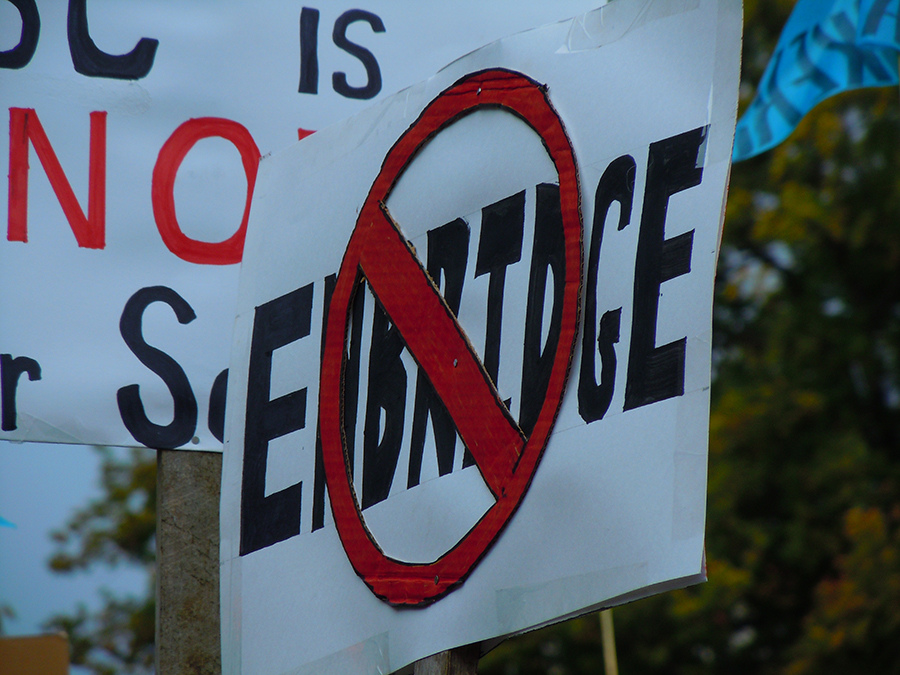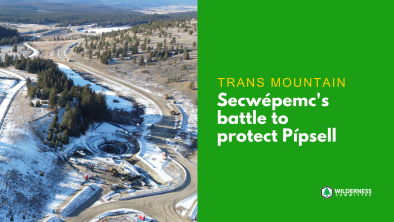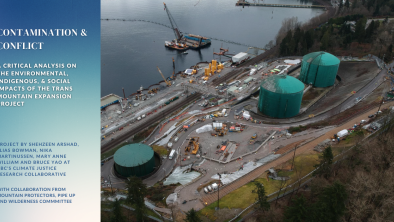What Does the Northern Gateway Approval Really Mean?
The Tyee

Financial analysts warn investors not to get too excited about Joint Review Panel decision.
Following months of public hearings across B.C. and Alberta, a federally-appointed panel recommended that Enbridge's $6.5-billion Northern Gateway pipeline be approved, provided the project meets 209 conditions.
"After weighing the evidence," reads the Joint Review Panel report, which was released Thursday afternoon, "we concluded that Canada and Canadians would be better off with the Enbridge Northern Gateway Project than without it."
The federal government now has 180 days to react to the decision, and decide whether to give ultimate approval to Northern Gateway. Twitter promptly exploded upon release of the report, with both critics and proponents weighing in.
Among financial analysts contacted by The Tyee, however, the tone was cautious and measured. Yes, today's decision marks a positive milestone for Enbridge, but they had this message for investors: don't get too excited.
"I'm not a legal expert," Steven Paget, director of institutional research at FirstEnergy Capital's Calgary office, said. "But there are ways to challenge national energy projects through the courts."
The potential for delays caused by legal battles against Northern Gateway are significant enough that FirstEnergy is not factoring the project into its revenue projections for Enbridge. "It's not in our projections at all," Paget said.
Neither is RBC holding its breath. Analyst Robert Kwan warned in a Wednesday research note "that opposition to the project (most importantly from certain First Nations)… [is] a major hurdle that could result in future legal challenges."
Efforts by project proponents to counter those challenges, he wrote, could ultimately result in "a lengthy process." Which is why analysts like Paget are unsure what implications Thursday's announcement has for oil sands industry growth.
"Any impacts," he said, "are well in the future." He went on: "The impact on oil sands development is very difficult to quantify."
'It's not do or die at all'
That's an opinion shared by Chris Theal, CEO of Calgary-based Kootenay Capital. The oil sands industry has shown steady growth over the past few years even with no new pipelines out of Canada, he explained.
Completion of Northern Gateway would allow producers to reach important new markets in Asia. But whether the project ultimately gets built isn't an existential concern for the oil sands industry. "It's not do or die at all," Theal said.
Major producers are prepared to ship oil via other potential pipelines -- including TransCanada's Energy East and Kinder Morgan's Trans Mountain expansion -- as well as by rail. "They've kind of got their eggs in every basket," he said.
That isn't to say Gateway isn't important for medium-term oil sands expansion. Any significant legal delays could put "further emphasis on the necessity of Keystone XL, which is way out of our control," Canoe Financial's Rafi Tahmazian told BNN.
Apparently also out of the oil sands industry's control at the moment is the B.C. government's stance on Northern Gateway. The province is "not yet in a position to consider support for any heavy oil pipeline," its environment minister said.
"There's no question that economic development is something important to all Canadians," Mary Polak told a Thursday press conference. "But it can't be at the expense of our environment. There has to be a balance struck."
The Joint Review Panel approval decision is a step towards striking that balance, she said. But, she added, "there is no evidence that [Enbridge] would be able to respond effectively and timely in the event of a spill."
Enviros firing up
That fear is also held by B.C.'s green groups. "The risk to our Pacific coast from an oil tanker spill is far too great to accept," the Wilderness Committee's Gwen Barlee said in a release. "This is an extremely disappointing result."
The Joint Review Panel agreed "that some level of risk is inherent in the Enbridge Northern Gateway Project, and that no party could guarantee that a large spill would not occur." Yet it ultimately decided that a large oil spill "is not likely."
That's hardly reassuring for the Dogwood Initiative's Will Hortor. "People across the province of all political stripes are ready to do whatever it takes to keep more crude oil tankers out of our waters," he said in release. "No JRP decision will change that."
Environmental groups are already planning the next phase of their campaigns. "This is far from the end of the story," ForestEthics Advocacy's Ben West said. "What really happened today was more like throwing fuel on a fire."
Read the original story here...
Photo: A sign protesting Enbridge at the Defend our Coast rally in Oct. 2012 (via LeadNow)


